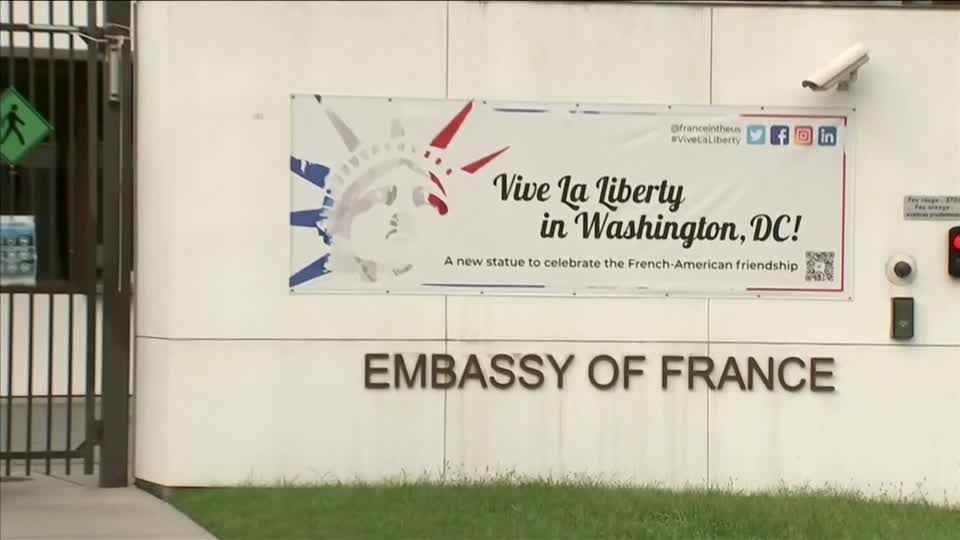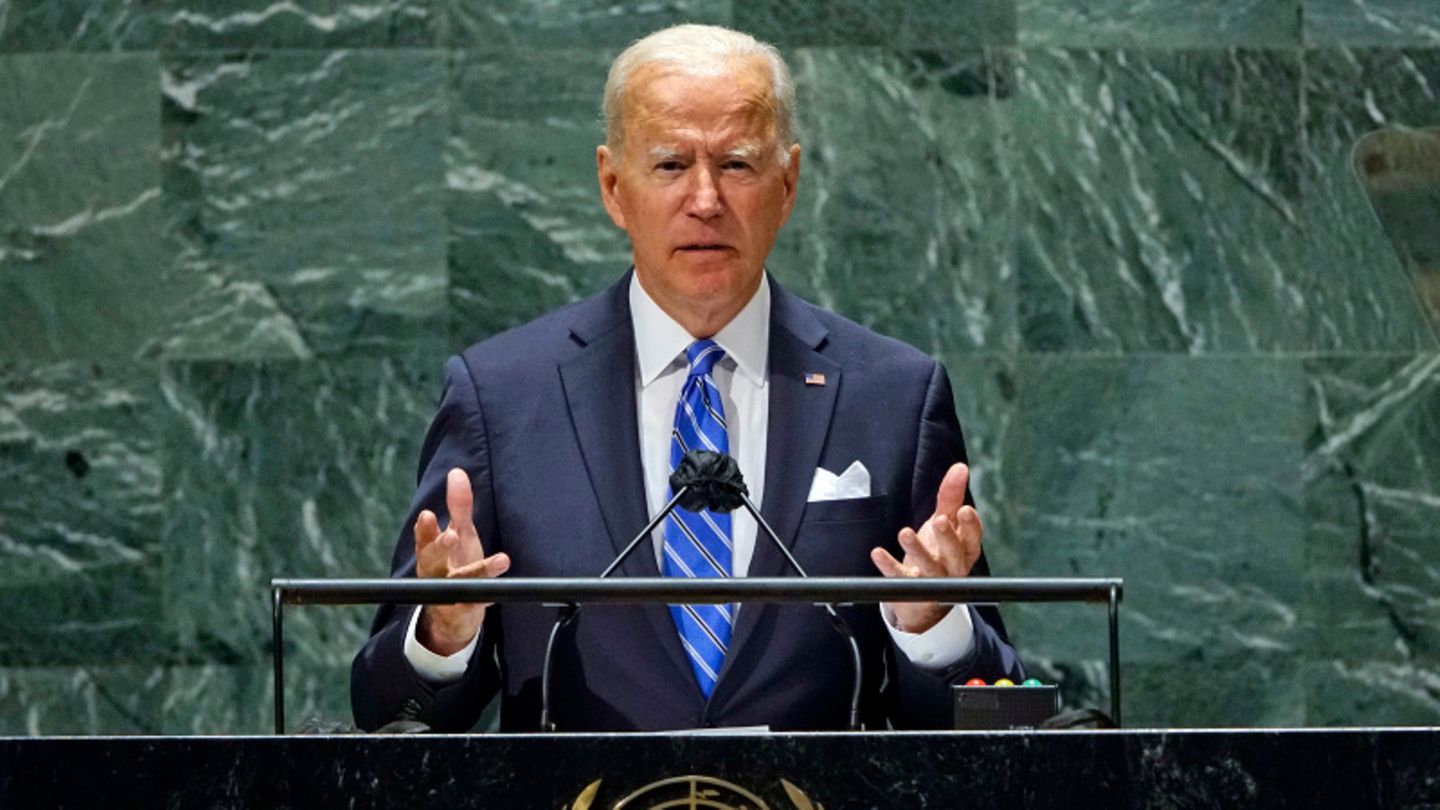Diplomacy instead of violence, nuclear deal with Iran, billions for the climate: in his grand speech to the United Nations, the US President tries to dispel doubts about the reliability of the USA – and is committed to international cooperation.
In his first speech as US President at the UN General Assembly, Joe Biden proclaimed a new era of diplomacy and committed himself to international cooperation. “As we end this time of relentless war, we are opening a new era of relentless diplomacy,” said Biden on Tuesday in New York with a view to the end of the military operation in Afghanistan. Biden also made it clear that the US is not looking for a conflict with China, but for tough competition. “We are not aiming for a new Cold War.” He stressed that his country wanted to continue to take a leadership role, but together with partners. International cooperation has never been as important as it is today.
Most recently, however, Biden himself had caused resentment among allies and doubts about the reliability of the United States by going it alone. Above all, a new security pact between the USA and Australia and Great Britain had angered France. The withdrawal of US troops from Afghanistan also met with some international criticism. The last US troops left Afghanistan at the end of August. This ended the international military operation in the country after almost 20 years. Biden had rigorously pulled through despite warnings from experts and contrary to the line of international partners and vehemently defended his decision despite the chaotic circumstances during the withdrawal.
Joe Biden clearly distinguishes himself from his predecessor Trump
In his UN speech, Biden tried to portray this as a strategic and historical turning point for the United States. For the first time in 20 years, the United States is not at war. “We have turned the tide.” Diplomacy now comes first, military force only needs to be used as a last resort.
The US President presented himself to the United Nations as an advocate of multilateralism and political prudence – in contrast to his predecessor. Donald Trump, a harsh critic of the United Nations, used the stage there year after year to promote his “America First” policy on national solo efforts. Biden, on the other hand, started with the promise to strengthen international cooperation in all areas again.
In his speech, Biden said that the security, prosperity and freedom of the international community are more intertwined than ever before. “And that’s why I believe we need to work together like never before.” The US is back at the table of international forums. The world is at a “turning point”, and in view of major challenges such as the climate crisis, a decisive decade is ahead of us.

Aukus military alliance casts shadows
However, Biden had recently been accused of not giving too much to international agreements: With the new security pact in the Indo-Pacific, the USA, Great Britain and Australia alienated allies. The plan includes helping Australia build nuclear-powered submarines.
China, which is being criticized for its increasing claim to power in the region, feels provoked by the alliance – which is likely to be its goal. But the initiative was not well received by partners either: New Zealand reacted with little enthusiasm. France is furious because the country has broken a multi-billion dollar submarine deal with Australia. Other European states and EU representatives were also irritated, disillusioned – and in solidarity with Paris. France’s Foreign Minister Jean-Yves Le Drian spoke of a “unilateral, brutal and unpredictable decision” that was strongly reminiscent of Trump’s appearance.
Biden now tried to dispel such associations. He did not specifically address the Indo-Pacific dispute, but also affirmed the will for international cooperation with regard to the region.
In view of the growing tensions with Beijing, Biden said, without explicitly naming China, that the US stood up for allies and opposed all attempts by stronger countries to dominate weaker countries. But the US did not want the world to be divided into blocs. The great powers have a responsibility to shape their relationships carefully and not to slide into conflict.
USA are ready to return to the nuclear deal with Iran
With regard to the nuclear dispute with Iran, Biden also adopted a decidedly moderate tone. The United States remains determined to prevent Iran from building nuclear weapons. But they are ready to return to the nuclear deal with Tehran if the Islamic Republic adheres to the terms of the agreement.
And: Biden tries to score points on the multilateralism scale in those major crises that have nothing to do with security or military issues and where international cooperation is essential per se: the corona pandemic and the climate crisis.
This Wednesday, Biden convened an international online pandemic summit to discuss, among other things, a fairer distribution of vaccines around the world. In his speech he announced that he would make new commitments there. It has not yet become more specific.
Biden also promised the US would double its climate aid to poorer countries. Together with the international community and other donors, the goal of providing 100 billion dollars a year to support developing countries can be achieved. In April, Biden announced an increase in climate aid to $ 5.7 billion (€ 4.9 billion) a year.
David William is a talented author who has made a name for himself in the world of writing. He is a professional author who writes on a wide range of topics, from general interest to opinion news. David is currently working as a writer at 24 hours worlds where he brings his unique perspective and in-depth research to his articles, making them both informative and engaging.




